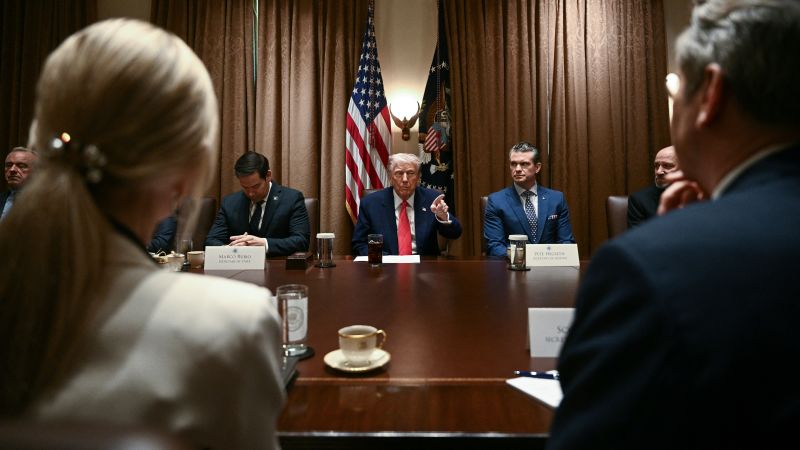This weekend has once again been dominated by news on President Donald Trump’s back-and-forth tariffs.
The revelation late Friday that key electronics, including smartphones and semiconductors, would be exempt from Trump’s “reciprocal” tariffs spurred optimism for the US tech sector.
But Commerce Secretary Howard Lutnick added another wrinkle today by indicating the exemptions will be temporary, telling “ABC This Week” targeted new tariffs will apply to electronics in the months to come.
Administration officials have been mixed on how to describe the exemptions today, but emphasized that the administration will study the national security implications of semiconductor imports before potentially imposing electronic-specific tariffs.
Here’s what we heard from other Trump officials:
• Kevin Hassett: At least 130 countries are negotiating potential trade deals with the US following Trump’s 90-day pause on the “reciprocal” tariffs, the National Economic Council director told CNN on “State of the Union.” He said talks with Beijing, meanwhile, are in the very early stages, “if at all.”
• Peter Navarro: The White House senior trade adviser did not say whether there have been new talks in the deepening trade war with China, though he added in an appearance on NBC’s “Meet the Press” that there’s an open invitation and Trump has a “good relationship” with Chinese leader Xi Jinping.
Meanwhile, criticism and concern: Democratic Sen. Elizabeth Warren slammed Trump’s “red light-green light” approach to tariffs. “Nobody can figure out what the rules will be five days from now, much less five years from now,” Warren said on “State of the Union.”
The progressive lawmaker is also among the Democrats calling for a probe into whether Trump intentionally manipulated financial markets around his tariff pause. Lawmakers have not yet provided evidence to back up their suspicions.
Former Treasury Secretary Larry Summers said on CNN’s “Fareed Zakaria GPS” that the tariff policy is “the worst self-inflicted wound through economic policy” since World War II.
And billionaire investor Ray Dalio told “Meet the Press” the US is “very close to a recession.” Dalio called Trump’s trade policies “very disruptive” so far, though he acknowledged it “could be part of a process.”

